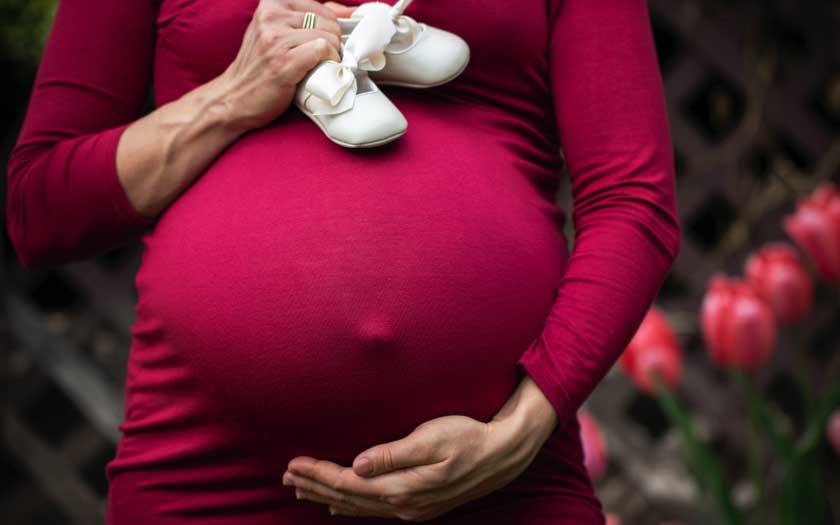Everybody needs iron in their body. This mineral is crucial for producing hemoglobin, a protein in red blood cells that carries oxygen to our organs and tissues. This need increases significantly during pregnancy, where extra iron is needed for the increased blood volume needed for both the mom and her baby.
Many woman are found to be lacking in iron in their body during pregnancy. Don’t be one of them!
During pregnancy, the body has to make extra blood for the mother and her baby and so there’ll be a need for extra iron. If this need is not met in time, the body will tend to tap into its stores. If this goes on long enough, the body’s iron stores will begin to deplete, giving way for a condition called anemia, which is alarmingly common among pregnant women.
According to experts, iron deficiency anemia in the first two trimesters is associated with a twofold risk that the fetus will be born preterm and a threefold risk of low birth weight.
As serious as it sounds, (and it is!), iron deficiency isn’t that complicated to treat. What’s even better, it’s so easy to prevent! Eating the right kinds of food and taking your iron supplements as directed by your doctor will keep iron deficiency at bay and help you have a healthier pregnancy.
Here’s how it usually is with most pregnancies: During prenatal checkups, your doctor will check for the possibility of anemia. If your blood count is low, your doctor may recommend you take an iron pill in addition to a prenatal vitamin fortified with iron for the rest of your pregnancy.
Watch out for the signs of iron deficiency
A deficiency in iron can cause the level of hemoglobin in your blood to go down, resulting in anemia. You may not notice anything out of the ordinary at first, but as the condition worsens, you may notice obvious signs including:
1. Unexplainable fatigue and tiredness no matter how much sleep you get
This is because your body is screaming for more iron to make much-needed haemoglobin, the substance in red blood cells that transports oxygen around the body. Lack of iron leads to a lack of healthy red blood cells, which in turn leaves you feeling tired and listless.

2. You’re experiencing shortness of breath
If your body is not efficiently transporting oxygen to the lungs, you may start to feel breathless even with minimal exertion, and you’ll find yourself having much lower endurance power than ever before.
3. You seem pale and washed out
Mirrors don’t lie, so if you look like you’ve been hibernating for the last few months, lack of iron may be the culprit! Also, check if the inside of your lips, your gums, and the inside of your bottom eyelids are less red than usual, for these too point to low iron in your body.
4. You keep getting sick
There may be many other reasons for you to fall ill, but don’t rule out lack of iron either, for studies have shown that iron deficiency can affect the immune system, making a pregnant woman more likely to pick up infections and viruses.
5. You’re experiencing heart palpitations
Your heart may feel like it’s pounding, fluttering, or beating irregularly, often for just a few seconds or minutes.
6. You’re having sudden cravings for non-food substances
Unless you’ve experienced it before, this phenomenon may sound a little off to you. In reality, though, it’s a condition called pica. It can occur when your body is low in iron. Talk to your doctor if you feel a sudden urge to tuck into some clay, paint, etc.
How much iron is needed?
As soon as a woman becomes pregnant, the body’s iron requirement increases by 50 percent, from 18 milligrams a day to 27 mg a day. The need for iron supplementation may prolong after giving birth, about 9mg a day.
Will a supplement be needed?
Pregnant women are recommended to take 27 mg a day of iron as a routine dose. However, if severe morning sickness is an issue, and it’s believed that the iron supplement is making it worse, the doctor should know about it. In cases like this, a doctor might decrease the dosage or recommend that the supplement be taken in divided doses and with food. Remember that iron is a mineral that is best absorbed on an empty stomach, so take it before you eat in the morning or when you go to bed at night.
Why iron in some prenatal supplements don’t work
The absorption of iron by the body is easily inhibited. One of the culprits for this is calcium, so be careful not to take your calcium at the same time as your iron supplement. As most prenatal vitamin contains calcium, you can’t depend on the iron included in the supplement to help out much. Remember to not take an iron supplement at the same time you take your prenatal supplement either!
Help your body absorb more iron
Vitamin C is known to help with the absorption of iron. Try taking your iron supplement with a glass of orange juice or any other drink rich in vitamin C. If you take your iron in the morning, take calcium or prenatal vitamins containing calcium before bed instead. If, however, the iron seems to be upsetting your stomach, switch these around and take the iron before bed when you can, hopefully, sleep off any discomfort!
Of Iron & Constipation
Constipation during pregnancy may become worse with the increase of iron through supplements. To combat this, increase your fiber intake by eating lots of fruits and vegetables. Don’t forget too, that drinking more fluids will help fend off constipation.
Obtaining iron through food
The best and most easily absorbed source of iron is heme iron, the kind contained in red meat, fish, and poultry. Oysters and many other types of shellfish are good sources of heme iron. However, some types of seafood contain heavy metals such as mercury, so make sure you’re not eating too much.
Nonheme iron, the kind that is less easily absorbed, is found in beans, legumes, and vegetables. This is the form of iron added to iron-enriched and iron-fortified foods. If you’re a vegetarian, you just need to eat more of these vegetables to get enough. Combining both types of iron in one meal (for example, eating chili containing both ground meat and beans) is the best way for your body to absorb the highest percent of available iron.
Sources of heme iron found in food (per serving)
- 12.8 mg of chicken liver
- 6 pieces of oysters (avoid taking these raw!)
- 3.2 mg lean beef (chuck)
- 3 mg clams
- 1.1 mg roasted chicken
Sources of nonheme iron
- 18 mg iron-fortified cereal
- 5.2 mg canned or cooked kidney beans
- 3.4 mg tofu (raw, firm)
- 10 mg instant oatmeal (with water)
- 6.6 mg cooked lentils
- 6.4 mg lightly cooked spinach
Hemochromatosis
If you have an iron overload disease known as hemochromatosis, you may need to forgo supplements and aim to get sufficient iron from your diet instead. Talk to your doctor about your concerns.


